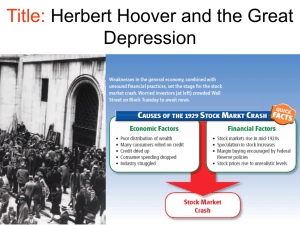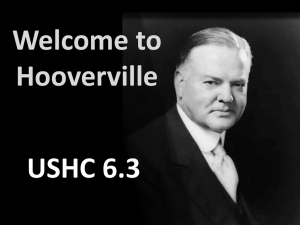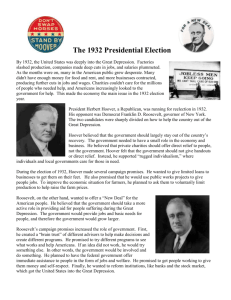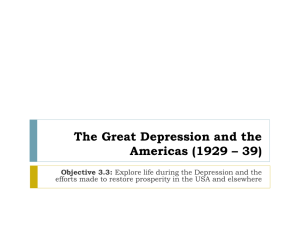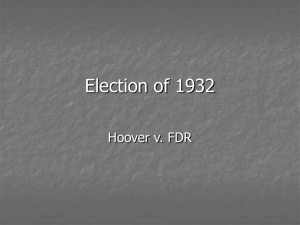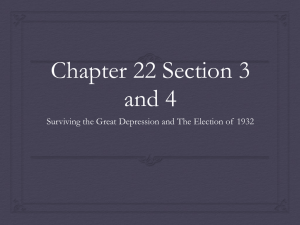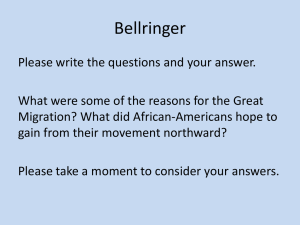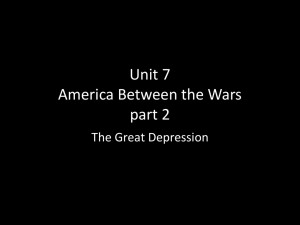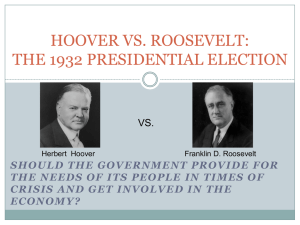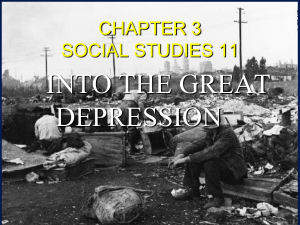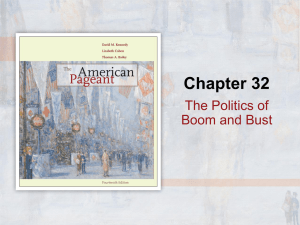The Election of Franklin Delano Roosevelt
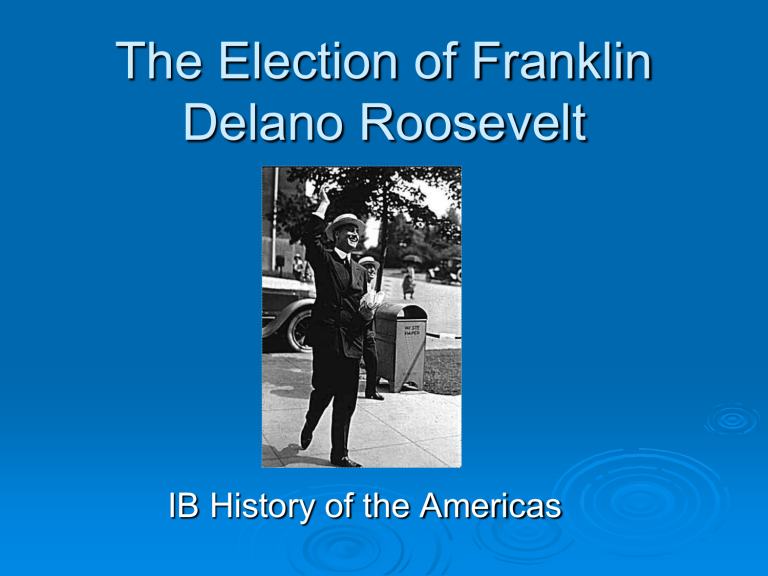
The Election of Franklin
Delano Roosevelt
IB History of the Americas
FDR: Politician in a
Wheelchair: Background
Charismatic, tall, athletic, handsome
Could also be superficial and arrogant
Born wealthy; 5th cousin of Theodore Roosevelt
Graduated from Harvard
1913 – 1920 – assistant secretary of the navy
Background (cont’d)
1921 – at age 39, contracted polio
Paralyzed from waste down
Disease made him more compassionate and strong
Served in NY legislature and was nominated to vice presidency in 1920
1928 – 1932 , Served as governor of New York
Used state spending to relieve suffering
Condemned by conservatives as a “traitor to his class”
His wife, Eleanor
Strong woman who traveled and campaigned for her husband
Franklin called her “his legs”
“conscience of the New
Deal”
Championed causes of poor and dispossessed
Powerfully influenced policies of national government
Election of 1932
Democrats Nominated Roosevelt
Would repeal prohibition
Blamed Hoover for Depression
Would balance the budget
Sweeping social and economic reforms
Election of 1932
Republicans Nominated Hoover
Done without enthusiasm
Praise Republican anti-Depression policies
Halfhearted promise to repeal prohibition
Roosevelt’s Campaign
Brutal attacks on Republican handling of
Depression
New Deal for the “forgotten man”
Some vague and contradictory promises
Promised to balance the budget; attacked
Hoover for deficit spending
1932 ELECTION
Hoover
“The Worst is
Past"
"Prosperity is Just
Around the
Corner"
Hoover’s Pessimistic Campaign
Hoover battled the Depression while trying to campaign
Slogans like “The Worst is Past” and “It Might
Have Been Worse”
Spoke out for free enterprise and individualism
Argued that repeal of Hawley-Smoot Tariff would make Depression worse
Results of the 1932 Election
FDR beat Hoover by 7 million votes (22 to 15 million
472 – 59 in electoral college
Hoover carried only 6 states
Blacks began shift from Republicans to
Democrats, especially in urban North
Republicans hurt by Depression
Vote was more anti-Hoover than pro-Roosevelt
Hoover’s Humiliation
November 1932 – March 4, 1933 was Hoover’s lame duck period
Hoover could not take any long-range action without FDR
Roosevelt refused to be tied down by Hoover on war-debt or anti-inflationary policy
Republicans argued (now and then) that
Roosevelt deliberately allowed the Depression to worsen to give himself more glory
1932 ELECTION
Lame-duck period
(Nov.
1932-March 3, 1933)
banking industry collapse
Twentieth Amendment
(1933)
1929-1933
Franklin D. Roosevelt and
Herbert Hoover on the way to FDR's inauguration,
March 4, 1933
(Library of Congress)
20
th
Amendment
Now, the new
President would be sworn in on the 20 th day of
January instead of in March
Tried to do away with lame ducks
FDR and the 3 R’s (Relief,
Recover, and Reform)
March 4, 1933 – Roosevelt inaugurated
Speech broadcast nationally via radio
Blamed Depression on “money changers”
Government must attack Depression as it would an armed enemy
“Let me assert my firm belief that the only thing we have to fear is fear itself.”
